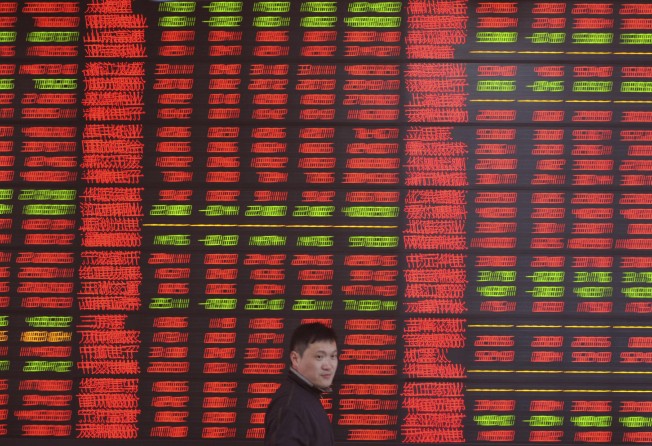The message can't be clearer: Beijing wants a bull market

"Investors are rushing into the stock market. That tells their full confidence in the market and their urge to enjoy the fruit of the country's reform and economic development. They should be aware of risk though."
CSRC spokesman, April 17
When a risk-phobic regulator says this upon announcing that eight million first-time investors have bet in the stock market in the past three months, you know where the optimism is coming from.
Beijing sees a strong capital market, both in mainland China and Hong Kong, as its engine in reviving the economy.
A buoyant stock market will boost consumption. Hopefully it will also provide the much needed capital to replenish its banking and property sectors, which have already served their time in boosting the economy.
Don't say that it is risky. Any Beijing cadre will ask you to name a major economy in the world that is not boasting a bull market despite a sad economy.
That's why the People's Bank of China told both local and international journalists last month that it was wrong to describe money in the stock market as speculation with no contribution to the real economy.
Xinhua - which warned the market rally was a "leverage-driven" one two months ago - did an about-turn this month to call it a "reform-driven bull" in at least six commentaries.
On Wednesday, it even listed "top leaders' interest in the capital market" as one contributing factor - on top of an interest rate cut - to the market rally. The message can't be clearer. Beijing wants a bull market; not a fast-running one but "slow" and "sustainable", to quote Xinhua.
That is where the Hong Kong stock market comes in. Hong Kong will help to absorb the flood of capital. It will make the re-rating of the greater China market look real. More importantly, it will provide the catalyst for the inclusion of the A-share market into the MSCI, the key performance benchmark for institutional investors.
Inclusion will bring in international investors and prompt healthier development of the market. It will generate new demand for yuan and further the push for the currency's internationalisation.
It's a must have.
In March, mainland securities regulators and exchange officials toured the US to explain to major funds how the Shanghai-Hong Kong stocks through train had largely removed the hurdles to investing in A shares and to lobby for their support of MSCI inclusion.
The response was not good.
The fund managers came up with a long list of hurdles that they said Beijing needed to overcome before they would say yes. One example is the bar on foreign investors hedging risk in the index futures market.
Much is being done to address their concerns, including an exploration of the possibility of allowing foreign investment in index futures; and the expansion of the quota for the stocks through train.
However, this can be a never-ending game if the market remains lukewarm, given global investors have little incentive to see inclusion happen.
What better way to remove the hurdles and get the market men rather than the lawyers speaking, than a sign of significant re-rating and proof that the stocks through train really works?
It is not hard to understand why Beijing announced in late March it would allow its five trillion yuan (HK$6.3 trillion) worth of mutual funds to invest in Hong Kong stocks a month before it happened.
Once mainland investors got the signal that Beijing wanted to see a bull market in Hong Kong, they would finish off the job. The result is a market rally in both Hong Kong and the mainland a month before the MSCI review.
The big question is whether the rally can be sustained.
The test is coming. Thanks to the rally, each and every company listed in Shanghai and Shenzhen has seen its share price rise above its book value.
That means everyone is now eligible to sell shares. Let's see how well the millions of first-time investors will respond to that.